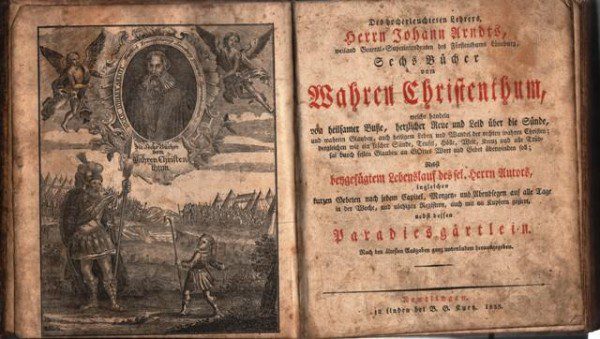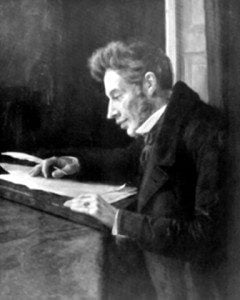Yes, indeed, pietism (properly understood, not simply in the sense of abstaining from dancing and such externals, no in the sense of witnessing for the truth and suffering for it, together with the sense that suffering in the world belongs to being a Christian, and that a shrewd and secular conformity with this world is unchristian)–yes indeed, pietism is the one and only consequence of Christianity. – S. Kierkegaard

I’m looking forward to participating this Tuesday in a upcoming colloquium on pietism.
There will be a session on the History of Scandinavian Pietism in the A.M., followed by the keynote address (to which I’ll be responding) by Efrem Smith, CEO of World Impact, and long-time leader in the Evangelical Covenant denomination. In the afternoon, there will be a session on Pietism, Gender, and Contemporary Christianity. (See Chris Gehrz’s blog for the full schedule)
Very briefly and crudely, pietism was a movement of continental European Christians (beginning in Germany with Lutherans, and expanding from there) who wanted to shift emphasis away from the dry, doctrinal precision-oriented nature of Lutheran Orthodoxy and toward a praxis and experiential-oriented Christianity — one which prioritized both inward spiritual depth and external action (and social activism) in response to the life and teachings of Jesus.
In short, it was a movement concerned with active discipleship.
Kierkegaard once called Pietism, “the one and only consequence of Christianity.” He was careful to point out that he wasn’t inspired by the legalistic and moralistic manifestations of Pietism (no drinking, dancing, etc.). These preoccupations were perversions of Christianity. Rather, it was the heartfelt inwardness that was linked to the earnest attempt to follow Christ, even in the face of “collisions” with the world. That’s the Pietism he wanted — and that should inspire us still today.










